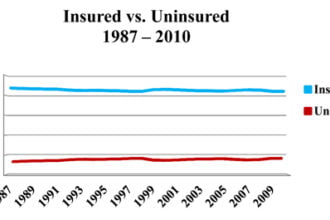In recent years, scientists have shown that financial incentives can drive short-term behavioral changes that are associated with improved health; things like losing weight and quitting cigarettes, for example. The rewards in these studies include direct cash incentives, gift cards and so on.
Recently, the Centers for Medicare and Medicaid Services announced plans to leverage this strategy with a $100 million initiative that permits states to offer incentives to Medicaid enrollees for adopting healthy behaviors.
Called a “demonstration program,” the CMS initiative is designed to figure out which strategies produce long-term behavioral changes. It should also help CMS determine the extent to which special populations (like adults with disabilities or children with special needs) can participate in the program, the level of satisfaction with the program, and the administrative costs incurred by State agencies that administer the program.
The program is funded by the new health care law (known as the Affordable Care Act). It invites each state to submit one proposal . Grant Applications are due to CMS by May 2, 2011. There are no state cost-sharing requirements.
According to CMS, the proposals must be “comprehensive, evidence-based, widely available, and easily accessible.” When states prepare their proposals, CMS recommends that they rely on evidence-based research which can be found in documents like the Guide to Community Preventive Services, the Guide to Clinical Preventive Services, and the National Registry of Evidence-based Programs.
“Keeping people healthy is an important goal of the Affordable Care Act,” HHS Secretary Kathleen Sebelius said in a press release. “One way to reach that goal is to encourage all Americans to make better choices about diet, exercise and smoking to avoid potentially disastrous outcomes down the road like heart disease, cancer or diabetes.”
The incentive program targets behaviors that trigger some of the most expensive chronic conditions that affect Medicaid beneficiaries. For instance:
– Cigarette smoking causes 430,000 deaths per year and is the largest preventable cause of morbidity and mortality in the US.
– Overweight and obesity increase the likelihood of cardiovascular disease, cancer, arthritis, all-cause disability and other health problems. Nearly one third of US adults are obese, and the condition contributes to about 300,000 deaths per year. In 2008, obesity cost the US health system about $147 billion.
– Diabetes cost the US health system about $116 billion in 2007. Nearly 24 million Americans have the disease.







